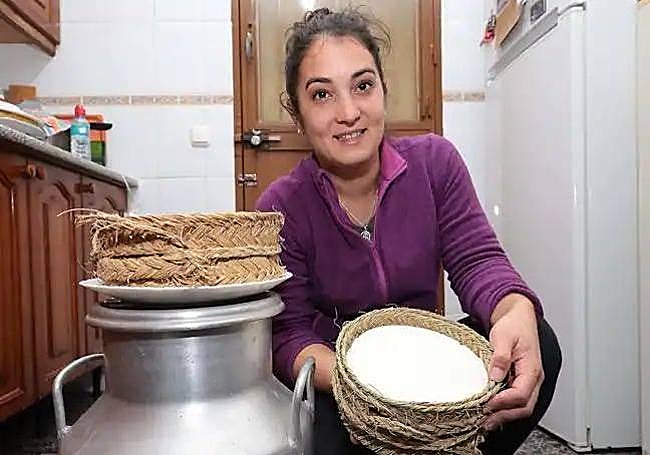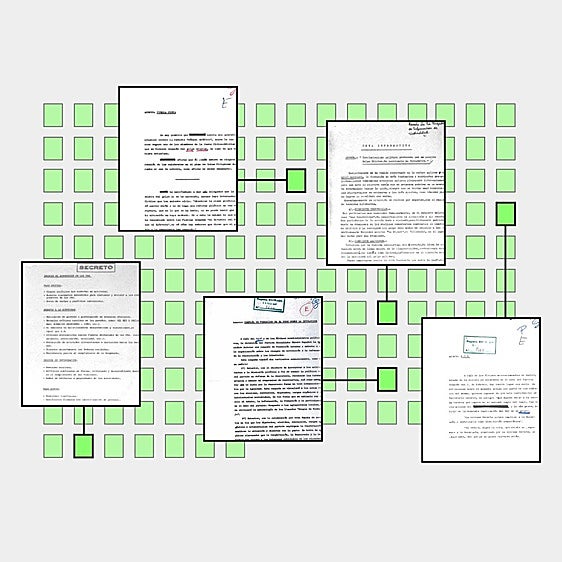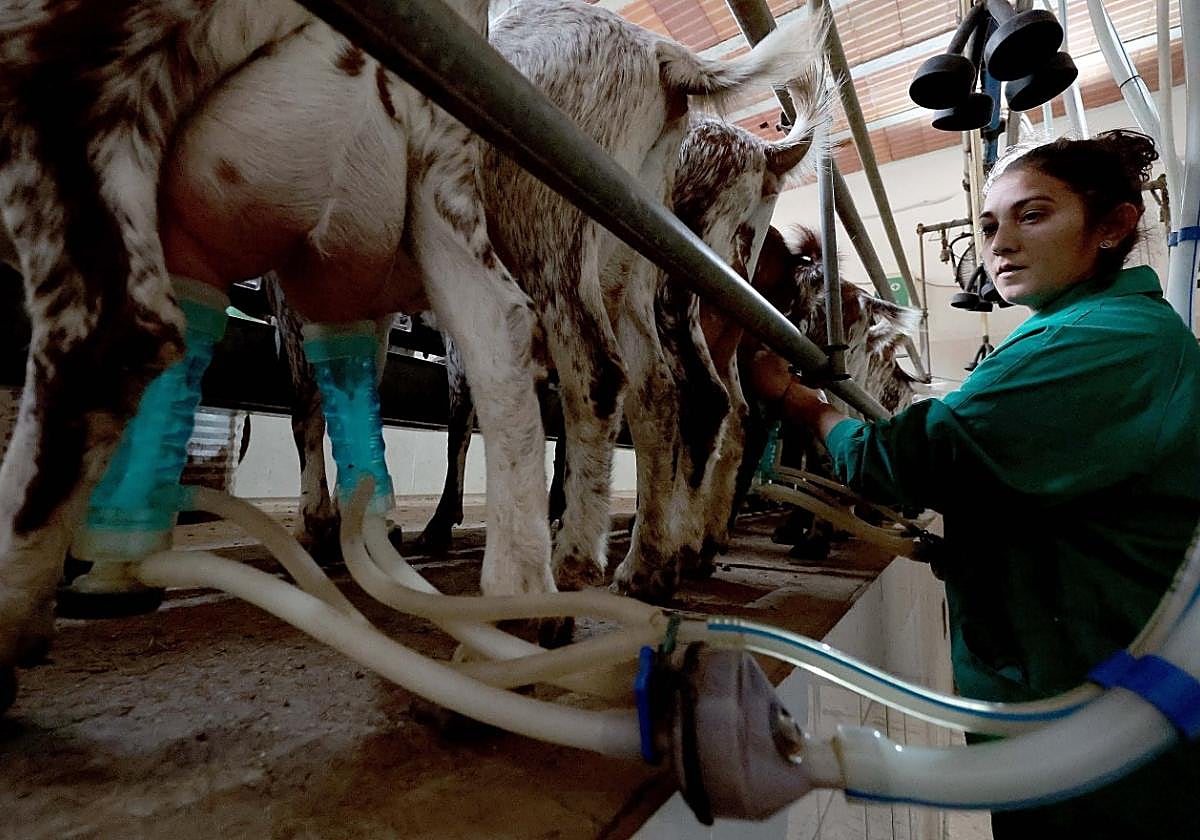Lorena, the girl who grew up among goats
The 33-year-old from Carratraca loves her job and has a dream of opening a cheese factory
Alba Tenza
Malaga
Friday, 10 November 2023, 16:49
She walks into the barn with a bundle of hay over her shoulder. As she approaches, the bleating grows louder. The goats know that feed time has come. She leaves the hay inside one of the four large troughs and in less than five seconds hundreds of goats swarm in. Dessert will be during the second milking of the day.
Lorena Suárez's day starts at 7am. She is 33-years-old, but she has been working with her herd of goats since she was a baby, leading her to have one dream: to open her own cheese factory. "I grew up among goats, at seven-years-old I was already spending my days in the fields, I took [the goats] grazing, and then I put them back," she said while preparing the milking machine.
At 6.30pm, she opens the gates again and more than 300 goats begin forming a line. They know all too well it is time for milking. "Every day of the year we milk them twice a day, groups of 24 goats come in, we milk them, they go out and the next group come in and we continue until we are done," she said.

Zoom

Farming in the Suárez Bautista family goes back more than 60 years. "I grew up the same as Lorena, among the goats, and just like me, three of my six siblings also dedicated their time to raising and caring for goats," recalled her mother Juana Bautista, with her baby grandson in her arms. When she married her husband, Miguel Suárez, he already had some 100 goats, a fifth of what they own now. "This is our daily life, 365 days a year," he said.
Every other day, the family collects around 600 litres from the herd, which they store in a tank kept at 2C. The amount they produce is dependent on time of year, however.
Tradition
She pours fresh milk into a 40-litre jug and takes it to her parents' house to make cheese. "I make the cheese in a traditional way, I put it in a traditional grass-woven basket as they did in the past, I press it, and add salt to capture the flavour," she said while preparing the cheese. This type of farming is not cheap: "The goats eat a lot, about 10,000 euros a month goes towards feeding them and their welfare," she said. The profit margin does allow farmers to make a living, although this is difficult now due to a lack of water. "The drought has meant the price of everything has gone up, we don't know what will happen if it continues, just a few years ago a bale of straw cost 1.20 euros and not it costs 4 euros," explained the farmer.
A cheese factory
"I have always had a passion for cheese. When I was small my mother taught me how to make it and since then it has always been with me," said the young woman from Carratraca. She was inspired by her father to set up her own business and make cheese from their own milk. However, at the moment she is unable to set up this business as she lacks funds to make this dream come true.
Lorena gained her qualification for cheesemaking in 2012, and once she had this she calculated that it would cost 30,000 euros to have her own factory. She also explained how "the cheese cannot be made in the traditional way because you have to pasteurise it to get rid of the germs". However, now that she is taking over the family business, it is an opportunity to chase her dream once again. "I could set up the cheese factory in the upper part of the building where we have the pens. This way we could house the whole business in the same space. Although everything is tough at the beginning, it is a dream for me to work on this project," she said.
Her passion for cheese has been there ever since she was a toddler, before she could even walk. If one thing is clear it is that the legacy of the Suárez Bautista family will live on.



